Histoires de café au Guatemala #2 - El Platanillo
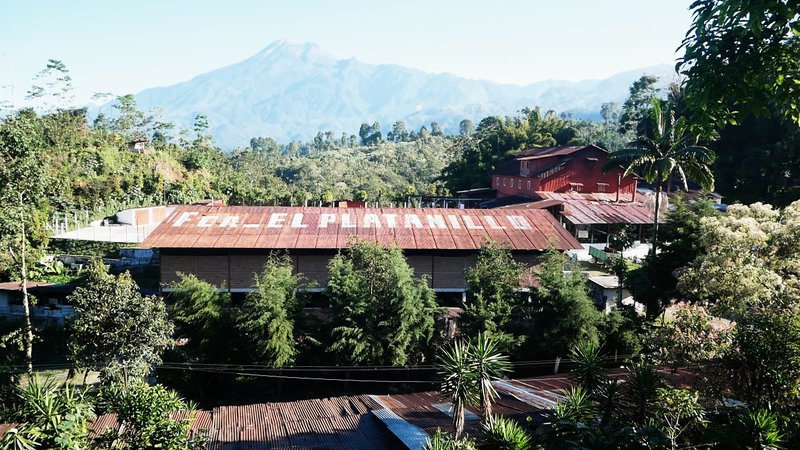
Let's follow up with our cycle of coffee stories from Guatemala.
Back in the region of San Marcos, very close from the frontier with Mexico, we had the chance to visit a farm that belongs to Stuardo Coto's family since 1977, when his father Samuel acquired it. When we were there, we were received by Jorge Mansilla, technical manager for the improvement of agricultural practises in the farm El Platanillo.
"A whole life dedicated to coffee"
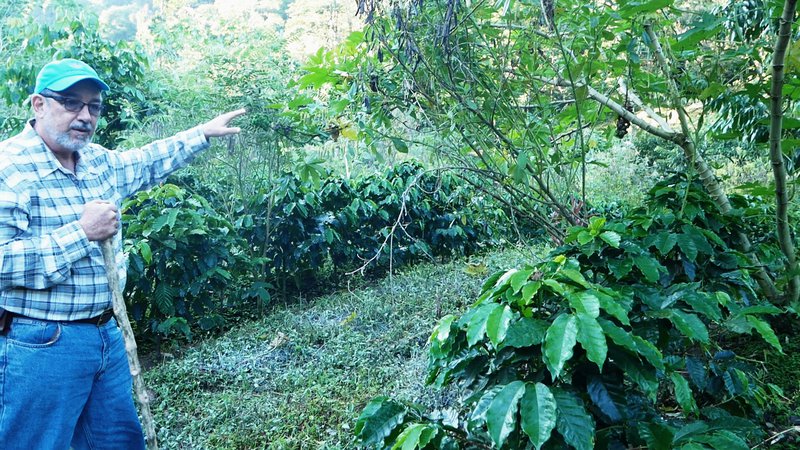
Jorge explains us the work that has been achieved over the past 40 years with the whole team of the farm under the directives and supervision of the family Coto.
Even during the conflict that opposed the army and the guerrilla, they kept working on the farm. It was a complicate time when anything could happen from kidnapping to attacks and violences. Most of the people fled the countryside but the work on the farm had not been interrupted. All together, the team of El Platanillo contributed to the sustainability of the farm both socially and environmentally.
"Valorize the workers so that they can live in decent conditions"
Social responsibility is an important aspect of the coffee production and even more, considering the current price crisis faced by the sector. When you arrive in El Platanillo, you will find houses and facilities that have been built for the permanent and temporary workers. A lot has been done explains Jorge to improve the living and social conditions of the staff. Workers are trained to different tasks from the maintenance and monitoring of the farm to harvest and post-harvest process. A bonus system was also implemented to incentive quality and in the meantime, to allow the workers to improve their basic incomes.
A great work has been done also together with Anacafé, to train and empower the workers, especially the youngest, to motivate them to work on the farm. El Platanillo is partner of a specific programme - the Bachillerato* - dedicated to coffee production designed by Anacafés's Foundation Funcafé.
*Read the portrait of young (19 years-old) and passionate Roxana Lopez that participated to this programme with the support of the Direction of the company)
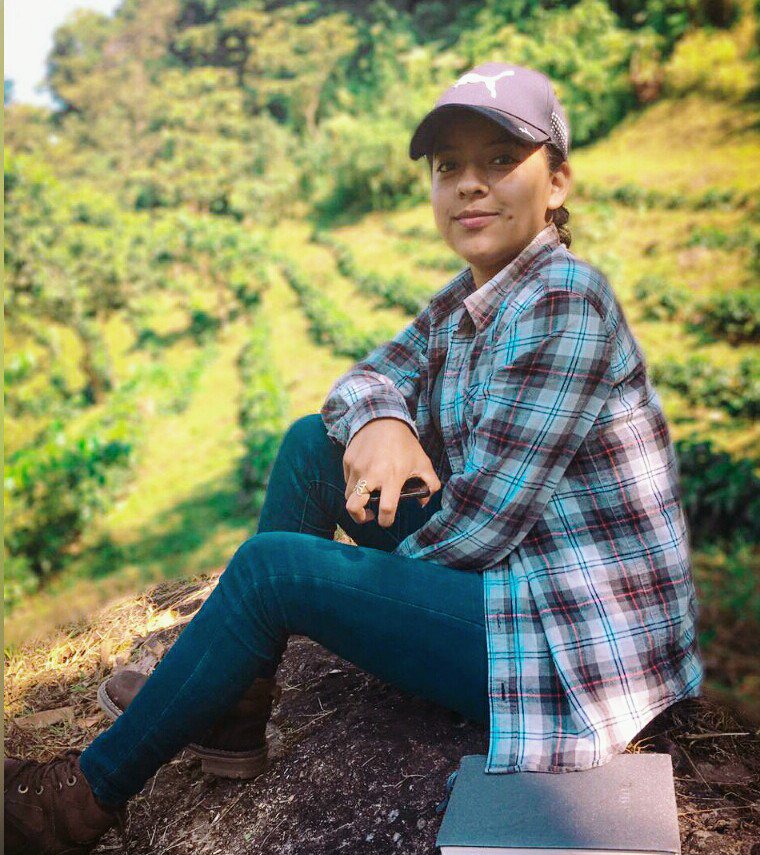
"I am an advocate for an agriculture respectful of the environment"
Another key aspect of El Platanillo sustainable management, is the environmental consciousness. The whole team "an advocates for an agriculture respectful of the environment". Concretely it means that, everything on the farm is subject to monitoring and diagnostic before deciding to apply any products or remedies.
"Better safe than sorry"
"Prevention and monitoring are fundamental. The use of chemicals is left as last remedy" as Jorge explains. We can call it a rational use of agrochemicals. Nothing is systematic. "We try to reduce the use of chemicals and to contaminate the least possible, to take care of the environment" adds Jorge.
It is important though to adopt different strategies. The costs of production have increased a lot over the past years, may it be the workforce (70% of the production costs) or the fertilizers. In a context of low prices and climate changes that greatly affect the cycle of the coffee trees, producers needs to find other remedies and to make use of new technologies and knowledge.
Let's take for example the case of the coffee leaf rust. Guatemala, as many other producing countries, as been greatly affected by this disease. The prevention and monitoring is fundamental to mitigate the effects of the epidemic. Another strategy, greatly encouraged by Anacafé, is to plant new hybrid varieties that have been developped for their resistance to the coffee leaf rust. It can allow to reduce the use of agrochemicals and thus, to reduce the environmental and financial cost.
Some will say however that these hybrid varieties cannot reach the same quality in cup. If it's true that most of them don't have in their essence the same attributes as a typica or a bourbon, you can actually reach a very high quality with good harvest and post harvest practises. It means... if you make a selective harvest of ripe cherries, if you take care of the process both of fermentation and drying, if you're creative also and experiment new processing methods, you can reach a very high score in cup and even win competitions with hybrid varieties.
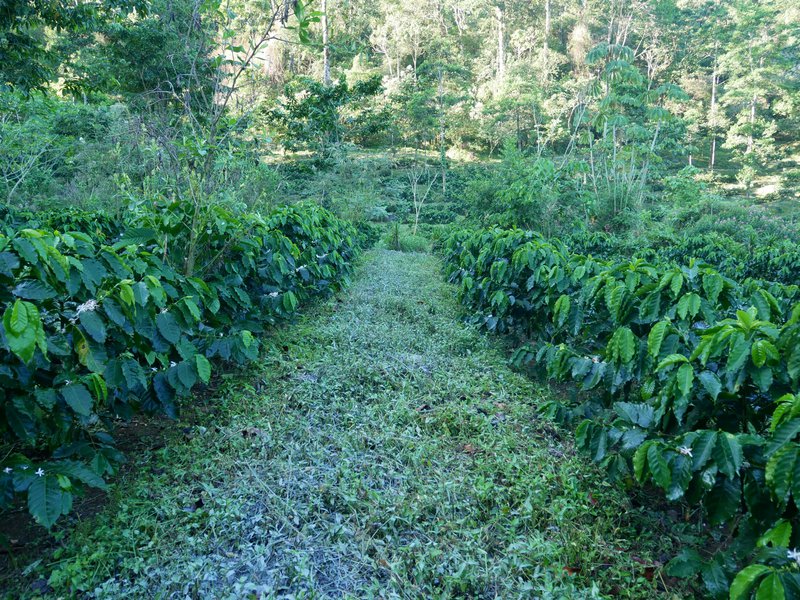
In this dynamic of respect of the environment and with the growing interest of the public for organic products, one parcel of the farm has been left apart for organic coffee growing. Jorge explains us though that it is a totally different perspective compare to conventional coffee. For organic coffee, the prevention and constant monitoring are absolute requirements.
"There are things that cannot fail"
There are things that cannot fail: shadow, soil and weed control, grafting of robusta for a higher resistance, production of home-made organic fertilizers and on the top of all... Patience.
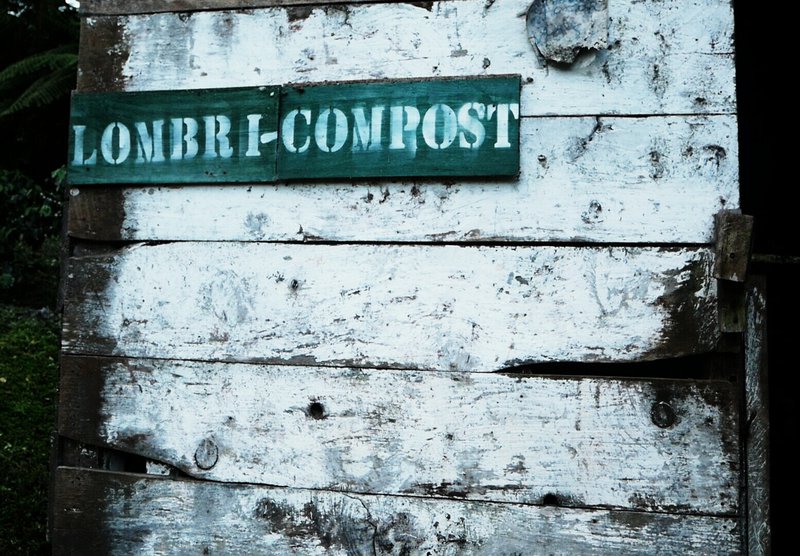
Patience... to leave time for the soil to recuperate from years of agrochemical that tend to acidify soils.
Patience... to allow the plants to produce their fruits following another production pace and pattern.
Patience... before reaching the same level of productivity.
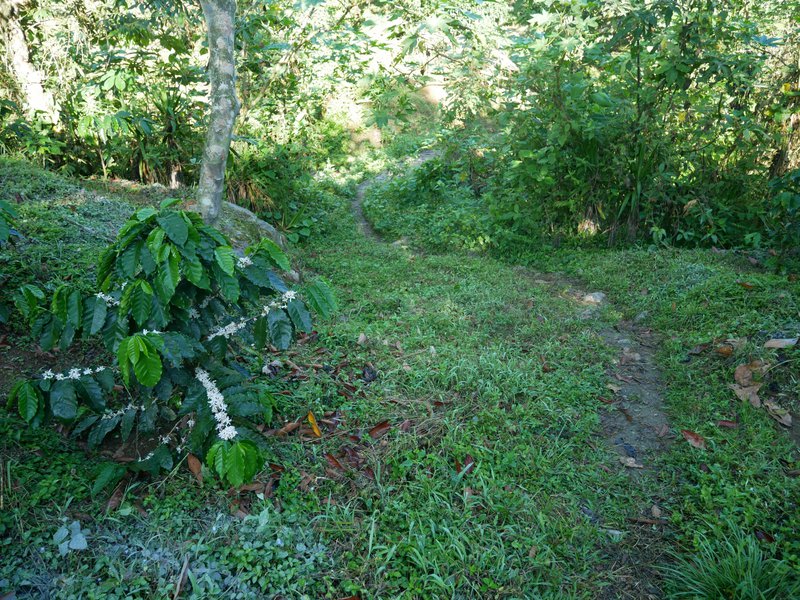
Organic coffee is a whole different school where one is forced to adopt a different time perception from conventional agriculture. It's an important shift for the industry and it won't happen from day to day. But as Jorge says, Guatemala is privileged by nature with its numerous mountains, forests, volcanic soils and natural water sources. Coffee growing tradition has to go hand in hand with environmental awareness to preserve this gift of mother nature.

 Guatemala
Guatemala Colombia
Colombia Ethiopia
Ethiopia Indonesia
Indonesia Kenya
Kenya Mexico
Mexico Philippines
Philippines Tanzania
Tanzania Uganda
Uganda